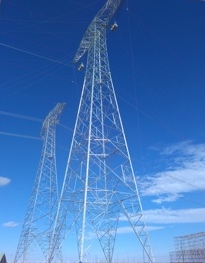This post is archived. Please check the Opportunities Page for current postings.
Page updated Feb 1, 2024 with new application link.
The UC San Diego School of Global Policy and Strategy (GPS) is hiring one or more postdoctoral researchers to conduct open modeling studies of accelerated decarbonization, with a particular focus on China. The postdoc will join the lab of the PI, Michael Davidson, Assistant Professor in GPS and the Department of Mechanical and Aerospace Engineering.
While China’s long-term goals of carbon neutrality have been set, there is considerable uncertainty about (a) the next decade, and (b) the pace, structure, and cost of low-carbon pathways. The transformation of the power sector—central to any decarbonization scenario—is hindered by entrenched incumbents and the institutional and engineering challenges of achieving the massive scale-up of renewable and low-carbon energy sources required. This requires the development of new modeling tools to capture physical resource, engineering, and political economy factors affecting the deployment of low-carbon energy. The postdoctoral researcher(s) will contribute to creating open and broadly accessible data, models, and insights, which target governments, academics, civil society organizations (CSOs), and industry stakeholders. Applications are welcomed in any of the following three areas:
- Renewable energy resource assessment and capacity planning optimizations. Questions include: Where to prioritize and what are the local impacts of rapid renewable energy build-out? What are key land use constraints and appropriate technological pathways to address them?
- Low-carbon power market models for affordability and reliability. Questions include: What are the emissions and economic impacts of non-standard power market designs? How much, where, and for what compensation is firm capacity needed to operate the system reliably?
- Finance, employment, and risk models of low-carbon transitions in state-owned enterprises (SOEs). Questions include: What are the financial and employment implications for coal reduction in major SOEs? What transition strategies are feasible both technologically and politically? The postdoc will be fully integrated into the GPS community, a highly interdisciplinary school of public policy scholars. The postdoc will also be expected to engage with other units on campus researching energy systems, particularly the Jacobs School of Engineering.
The postdoc will be fully integrated into the GPS community, a highly interdisciplinary school of public policy scholars. The postdoc will also be expected to engage with other units on campus researching energy systems, particularly the Jacobs School of Engineering.
Basics
Salary: Commensurate with experience
Appointment: 12 months (extendable based on mutual agreement and available funding)
Start Date: Negotiable
Qualifications
Basic qualifications (required at time of application) Must be pursuing or have already been granted a Ph.D. in a relevant field, including but not limited to Mechanical Engineering, Electrical Engineering, Systems Engineering, Operations Research, Economics, Political Science, or Public Policy.
Additional qualifications (required at time of start) Applicants are required to hold a Ph.D. or received a Ph.D. degree by the start of the appointment.
Preferred qualifications All candidates must have a demonstrated research ability and publication track record, and should be well-versed in relevant models and programming languages.
The committee is most interested in scholars who can be in residence for the duration of the appointment.
To Apply: Submit a CV, writing sample, personal statement, and contributions to diversity to the application link.

